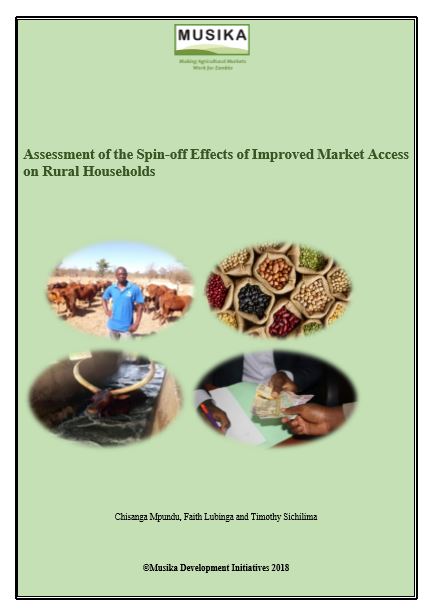
This report was generated to serve as a reference document for Musika and its implementing partners. Musika Development Initiatives (Musika) is a non-profit company that works to stimulate private sector investments in rural and agricultural markets.
Musika’s methodology involves facilitating the creation of a beneficial market environment that supports improved access to markets that in turn stimulates higher levels of farmer investment in production and productivity. The changes in farmers’ levels of production, productivity, incomes and general livelihoods as a result of their access to improved1 markets have all been measured, and positive results have so far been recorded. However, through this survey, Musika sought to identify the indirect spin-off effects, if any, of its interventions on the socio-economic status of the communities within which the interventions are taking place. In theory, with improved incomes, farmers can have the capacity not only to re-invest in their production and employ additional labour, but to engage more in the purchase of food and nonfood goods within the community which can have a ‘spin-off’ or economic multiplier effect within the local community.
In order to determine the presence and the characteristics of any ‘spin-off’ effects, Musika conducted a survey in Eastern and Southern Provinces of Zambia. It focused on farmers working with two agribusinesses it supports: one provides livestock services such as dipping, spraying, extension services and off-take opportunities to local cattle farmers whilst the other one is engaged in providing an output market for leguminous crops through an out grower scheme in which farmers are supported.
The study captured a total of 252 farmers from both intervention and non-intervention areas but the majority of the farmers interviewed (229 farmers) were from the intervention area. This study mainly focused on the 2016/17 agricultural season, benefits, challenges and overall community welfare2 that could be attributed to the improved market access by farmers.
